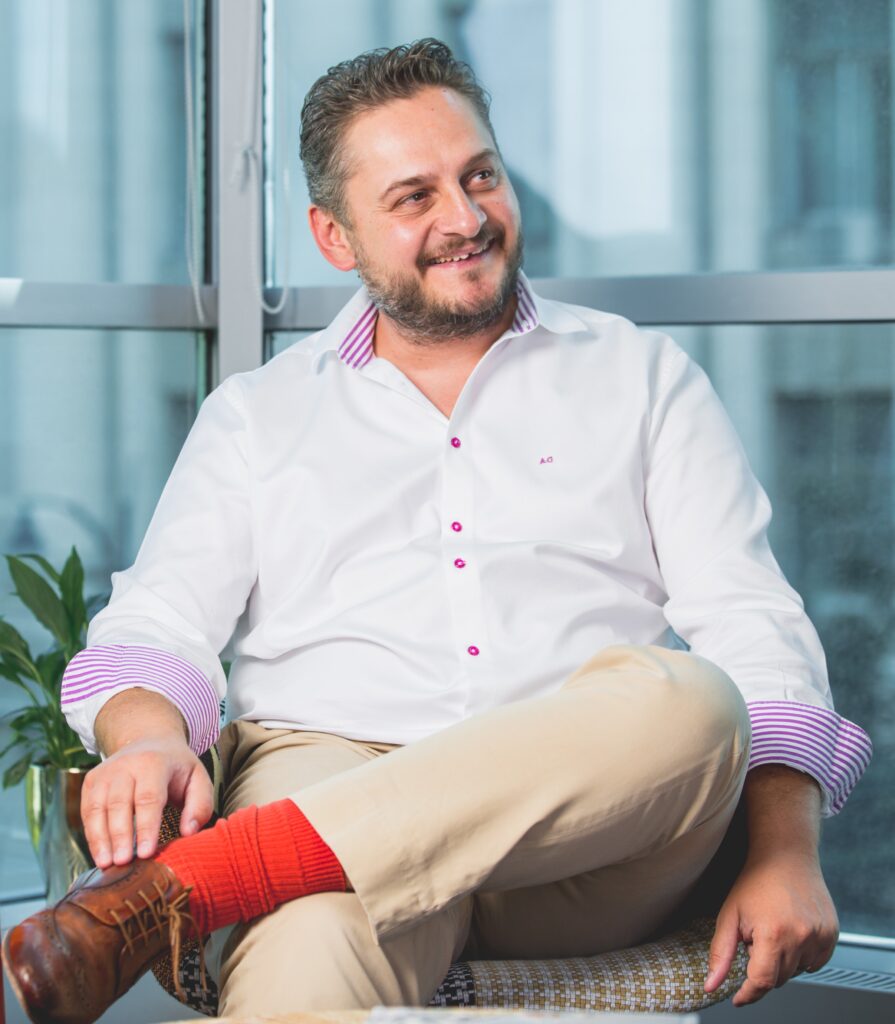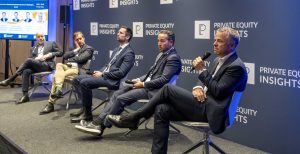Exclusive Interview: Andrei Gemeneanu on building Romania's private equity future


Andrei Gemeneanu, Co-founder and Managing Partner of Morphosis Capital, is on a mission to put Romania firmly on the private equity map. In this candid conversation with Private Equity Insights at CEE’s Largest PE Conference, he shares his views on the regional landscape, Morphosis Capital’s growth story, and how education and values-led investing play a defining role in his firm’s strategy.
Turning turbulence into traction
On a bright afternoon in Warsaw, tucked into the quieter corner of a high-ceilinged hotel lobby, Andrei Gemeneanu sits comfortably, his voice calm but purposeful. It’s the kind of setting that belies the significance of the conversation: a chance to dissect Romania’s emerging role in the private equity space with someone shaping its very trajectory.
Andrei is a seasoned investor with a global outlook, but the regional nuances of Central and Eastern Europe aren’t lost on him. “The old paradigm was that Western Europe is stable and Central and Eastern Europe is volatile,” he says. “I think now we have volatility everywhere.”
That volatility, he argues, carries growth. “Our job as private equity fund managers is to find opportunities irrespective of what’s going on in the macroeconomic cycle. Sometimes we can turn volatility itself into an opportunity.” He credits an old boss for the wisdom: “Never waste a good crisis.”
He doesn’t shy away from the complications of operating in a region often described in terms of instability. “Of course, the fundraising environment has been difficult. Of course, the war at the border doesn’t help,” he says. “But our job is to be aware of these things, not let them stop what we’re doing.”
When asked whether Morphosis ever clashes with political interference, Andrei is direct. “We try to not invest in sectors that are highly regulated or have significant revenue from state-owned organisations,” he explains. “We steer clear of regulatory risks.” That principle guides how Morphosis builds its portfolio: measured ambition, pragmatic optimism, and a consistent eye for resilience.
That strategic distance from politics hasn’t dampened optimism. “Romania has reconfirmed its pro-European affiliation,” he says. “There are macroeconomic challenges, like a budget deficit, but the general sentiment is positive.”
Betting on homegrown capital
This optimism is also part of what fuels Andrei’s institutional work. Recently appointed chairman of the Romanian Private Equity Association (ROPEA), he’s become a vocal advocate for the long-term development of the country’s capital markets.
“The EIF, EBRD and IFC have been bedrocks for our industry,” he says. But beyond international institutions, Andrei is pushing to unlock domestic capital. “We’re actively working to change the fact that Romanian pension funds don’t yet invest in private equity.”
Morphosis is already leading by example. “We’ve attracted over €30 million of local entrepreneurial capital for our second fund,” he says. “These are entrepreneurs who’ve built businesses over the last two to three decades. They bring capital, networks, and insight.”
I mention that private equity in Romania still seems largely under the radar. He agrees, grinning slightly. “Romania’s private equity AUM as a percentage of GDP is still at 0.0-something,” he says. “But that’s the opportunity – we have a market to create.”
Scaling vision, not just valuation
So what drives him personally? “I’m excited about private equity because private equity fosters entrepreneurship and entrepreneurship fosters progress and the development of a society. So, I think we’re in a really exciting industry.”
Morphosis recently closed its second fund at over €120 million – more than double the size of its first. “There’s a lot of blood, sweat and tears,” he says. “But we had three exits from Fund I. Each generated an IRR above 30%.”
Andrei describes himself as “an operator in my DNA.”
“A smooth operator,” I say.
“Exactly.”
His career path – from Unilever to entrepreneurship to private equity – reflects a long-held instinct for building businesses from the inside. “I felt right at home in private equity because, as I like to say to my team, it’s an unforgiving world in its expectation that you will drive superior returns.”
The Morphosis team reflects this ethos. “We’re gender balanced at the partner level,” he says. “Three of us were high school classmates. We’ve known each other a long time.”
This blend of shared history and professional diversity shapes the firm’s decision-making. “We are very different in terms of personality and in terms of professional background, and I think we complement each other well,” he says. “We trust each other.”
Founders first, always
Across retail, healthcare, and now education, Morphosis stays sector-agnostic. But people come first. “We never buy companies. We invest in partnerships because we are essentially a growth capital investor.”
Their approach is deliberate. “We’re very keen on assessing human fit,” he says. “We have a proprietary process in place that we call ‘human due diligence,’ which helps us understand whether the chemistry and the dynamics of the relationship will be positive in the future.”
That goes beyond skillsets and spreadsheets. “We assess values, vision, and chemistry,” he adds. “You test relationships in difficult moments.”
Founders are not just part of the story. They are the story. Andrei returns to this idea often: “We look for alignment and ambition. Everything else flows from there.”
Educating for impact
Few sectors illustrate Morphosis’s alignment philosophy better than education. Their Romanian Education Alliance began with two flagship acquisitions: Mark Twain International School and Little London Academy.
“We went into education with our head and heart,” he says. “And the two schools combined have enabled us to go above 1,000 children, which was the first milestone we were keen to reach. We are launching an organic campus in Cosmopolis. Now in September, we are preparing a bigger campus that we call the Flagship Campus that will be launched probably two years down the road.”
The long-term ambition is clear: build a national network of modern, accessible, competitive private schools across Romania.
Could that model support the public system too? “We haven’t made a strategic move in that direction,” he says. “We are always open and actually welcome kids from public schools in our sports competitions, debate competitions or Model United Nations.”
Andrei reflects on his own schooling. “Maths, physics – the old-school approach,” he says. “You have, in my view, exceptional schools on the public side in Romania, but unfortunately you probably have some schools that are not really fully unleashing the potential of those children.”
From Bucharest to beyond
The REA is just one part of Morphosis’s broader regional ambition. Their recent investment in Bulgarian satellite company Endurosat reflects this next chapter.
“A brilliant entrepreneur with a visionary mission,” Andrei says. “We want our portfolio companies to be regional and international champions.”
That thinking also applies internally. “We have to apply the same logic to ourselves,” he says. “Not just national champions. Regional ones.”
As our conversation winds down, Andrei gestures toward his younger colleagues. “We’re here at the Private Equity Insights Conference with Drăgălina and David,” he says. “Two young professionals with a lot of potential. I love young people – they give me energy.”
Towards the end of our discussion, he doesn’t romanticise the journey, but he is resolute. “Being one of the first movers in private equity in our geography means being comfortable with uncharted territories,” he says.
Andrei Gemeneanu is not just leading a private equity firm. He’s laying the foundation for a stronger, more entrepreneurial Romania. One partnership, one school, one satellite at a time.
by Andreea Melinti
If you think we missed any important news, please do not hesitate to contact us at news@pe-insights.com.
Can`t stop reading? Read more.




